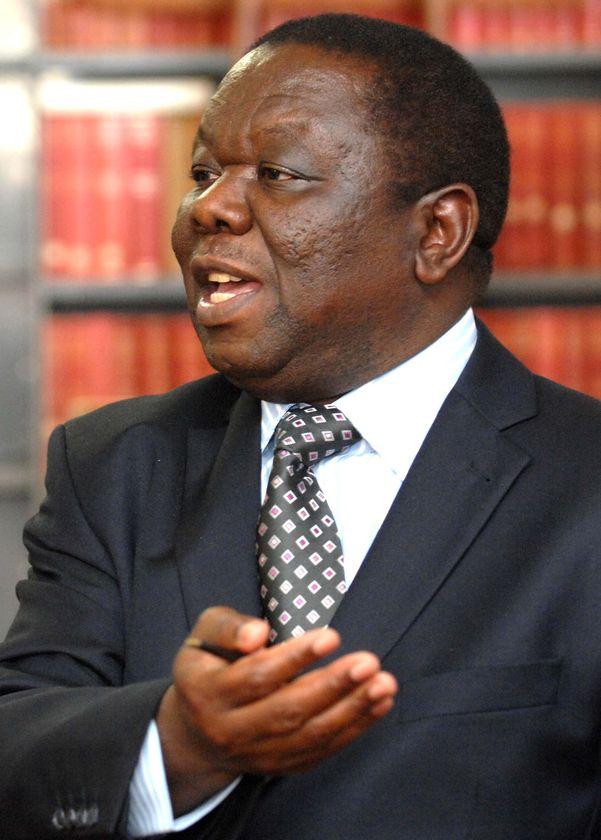Challenging the Western Approach to Advocacy
Having oscillated between exhilaration and despair in my experience with humanitarianism, finding a middle ground (what I call a “˜critical-hope’ position) has been and continues to be a challenge. This article seeks to present a critically-hopeful analysis of mainstream advocacy and where its future could perhaps lie.
Advocacy organisations form an increasingly powerful subset of humanitarian organisations, but as this power has grown, so has criticism of it. While communicating with people is a crucial part of “˜effecting change’, like many current critics, I have come to the conclusion that large advocacy organisations like Save Darfur are doing things the wrong way and consequently creating a new set of problems.
While beginning a dissertation on Indian philosophy and the problematics of human rights, I came across something by Gandhi that allowed me to rethink standard views on advocacy: “truth needs no publicity other than itself”, he said to Ronald Duncan, a visiting writer. I thought back to Gandhi’s incredible story and my own experiences and realised how right he was. Truth needs no propaganda; it is its own source of power. If you think about the most profound things you have seen, read, experienced and undertaken; if you think about the people you love and respect the most; you will find that an innate truth will be at their heart.
Perhaps Indian philosophy can present a way forward. The binding “˜rule’ of Indian philosophy is that one must think, speak and act with truth (truth here does not refer to simple honesty, but has a much greater and deeper meaning); and it is not enough to do one, or two; without all three, there will be negative repercussions. In my view, if these advocacy organisations (and indeed any kind of organisation) wish to work effectively, they must seek to do this.
It must be acknowledged that advocacy organisations face a number of constraints. Indeed such constraints exist within every sector of society in this increasingly homogenous world which requires faster and faster responses to unfolding events. With the supersonic expansion rate of information, information and more information, media, governments and people respond with an increasingly short attention span. Economics pervades all aspects of society, forcing us to quantify the unquantifiable and ensure that we remain results-oriented, profit driven and highly competitive. Advocacy organisations have grown and adapted themselves to these changes, mobilising people faster, raising more and more money and creating systems to respond quicker.
I really do think however, that the future does not lie in such adaptation; it lies in the resistance to them.
Think
Advocacy organisations must first think deeply about the issues and the specifics of each situation, rather than positioning their viewpoints through the lens of the standard codified human rights ethics (which are man made and therefore not perfect). Clinging to a set ideology without deep thought becomes pedagogy. As Bertrand Russell said: “if a man is offered a fact which goes against his instincts, he will scrutinize it closely, and unless the evidence is overwhelming, he will refuse to believe it. If, on the other hand, he is offered something which affords a reason for acting in accordance to his instincts, he will accept it even on the slightest evidence”.
There are two kinds of knowledge: knowledge through philosophy and knowledge through experience. Both are intimately linked and greatly inform each other. Often large “˜international’ advocacy organisations engage in advocacy without undertaking in-depth critical research and without working in-country with the people they advocate for. For those that do, there are also a number of system-related issues which create barriers to undertaking these effectively.
While there is an “˜economy’ to this setup, there is also a critical loss to such specialisation: these organisations often live such separate lives from the people they aim to support, that it is almost impossible for them to understand the subtleties and complexities of problems and therefore know what the best ways of supporting issues or people are. How can I truly understand the myriad of problems people face in having access to water for example, if I never experienced the lack myself?
Speak
Advocacy organisations should never seek to simplify, sensationalise or market issues. Marketing tactics generally only work (if they work at all) in the short term, until the next big issue comes along, inherently undermining people’s intelligence. One of the great achievements of Obama’s campaign and a reason it was so successful, was that it spoke to people intelligently. The campaign discussed complex issues without discrimination and raised the bar for political campaigning. Unsurprisingly, people stepped up to the challenge, seriously engaging with the issues and more importantly, continuing to do so. In addition, marketing campaigns based on the suffering of others is, as Anne Bartlett writes, exploitative.
Simplifying suffering also creates victim-oppressor narratives and analysis and consequently generates victim focussed approaches to alleviating suffering. The solution of Indian philosophy, presented by Swami Vivekanda, is that “we are not bound, we are free already… as soon as you say “˜I am bound’, “˜I am weak’, “˜I am helpless’… you rivet one more chain upon yourself”. Speaking about the strength of Darfurians and the ways in which they exercise power to help themselves, is as important as highlighting the suffering they have endured, so that people can understand how to help their efforts, rather than creating new efforts that bypass these latent strengths.
Act
The advocacy sector must also practice what they preach. If they want people to listen and learn, they should be willing to do the same. Rather than working one-way to achieve their campaign goals, they should be having conversations both outside and inside their respective organisations, stimulating a process of continuous dialogue. It’s amazing the insights one can gain through discussing issues with individuals or groups.
There is also the question of the “˜naming and shaming’ approach that advocacy organisations take. This is a very Western approach to effecting change and again I think that it remains in the realm of the short-term solution; sometimes it works and sometimes it harms. If we genuinely want to get governments to respect the rights of citizens, then we need to inspire them to do so, rather than shaming them when they don’t. To truly effect change elsewhere, you must lead by example. As Western organisations, we must accept that we represent the West and Western values. We must therefore work to hold ourselves to account before we can turn to others with any real legitimacy.
One of the most common criticisms by people all over the world (see the BBC’s Have Your Say on the topic) of the ICC’s indictment of Bashir, simplistic as it may be, holds a great deal of truth: how can the international community hold Sudan accountable when we haven’t successfully held America or Britain or Israel accountable? We preach democracy but are we truly democratic?
The “˜goodness’ or “˜badness’ of advocacy, like all things, depends on the manner in which it is done. Advocacy organisations have a significant role to play in raising important issues with people who often do not know of a greater world with bigger problems. Their role in forcing governments to act however is one that demands great caution. As we’ve seen in Darfur, advocacy organisations hold a great deal of responsibility for creating pressures for action that have worked counter to creating sustainable peace processes.
In thinking about the future of advocacy, the Zapatista movement’s philosophy is one that organisations may wish to look at. While acting on their own issues, the Zapatista stress that each set of people must find their own way. They do not purport to have solutions for others, while they have solidarity with them. Through global dialogue they believe that different movements can help and learn from each other. Their slogan of “asking, we walk” is one that takes great care to always remember that we must never overestimate our capacity to know what is right. That however should not stop us from asking important questions.
Neha Erasmus is programme coordinator at Justice Africa. An earlier version of this article was posted on www.change.org






I think this is an extremely thoughtful and important article. When organizations or movements are small and young, they are far more passionate than reflective, and are also because of their small size and relative lack of influence, they are rarely subjected to critical scrutiny, either philosophically or socio-politically. This was the case for humanitarian agencies from their beginnings until they began to have a major impact on the political outcomes in countries such as Rwanda in the 1990s. It was the case for human rights organizations too, but their slogans of “speaking truth to power” and “mobilizing shame” have different resonances when those doing the speaking have elevated their “truth” from a critique of power to become the exercise of a different kind of power. In both these cases, the necessary reflection, and maturing, of the movements came about in part through the critique that western humanitarianism and human rights activism comes with cultural baggage which needs to be declared.
The same is true for activist movements against atrocity. These move beyond the human rights paradigm to an explicit engagement with the power of western governments, especially the U.S. Perhaps inevitably, their socio-cultural luggage is almost entirely domestic. If they are to mature, they need to acknowledge that other societies have overcome the challenges of stopping atrocities through diverse means, and that there is much to learn from those experiences. The examples of Gandhi and the Zapatistas are salutary. To give another example, we should recall that the greatest success of the 20th century in overcoming famine was achieved by post-independence India, based on domestic forms of political mobilization.
As people allow “information and more information†to convolute their judgment, it has become somewhat difficult to unearth common sense these days. This dissertation takes an execution pattern that many know to be sound and true and reminds us of its legitimacy. It reminds advocacy organizations not to waste time blowing their own horns, to think before they act and to allow vigilant actions to speak louder than words. It prompts the staff to reassess their purpose. As someone not in the field, the article still strikes a chord, but on a personal and universal front.